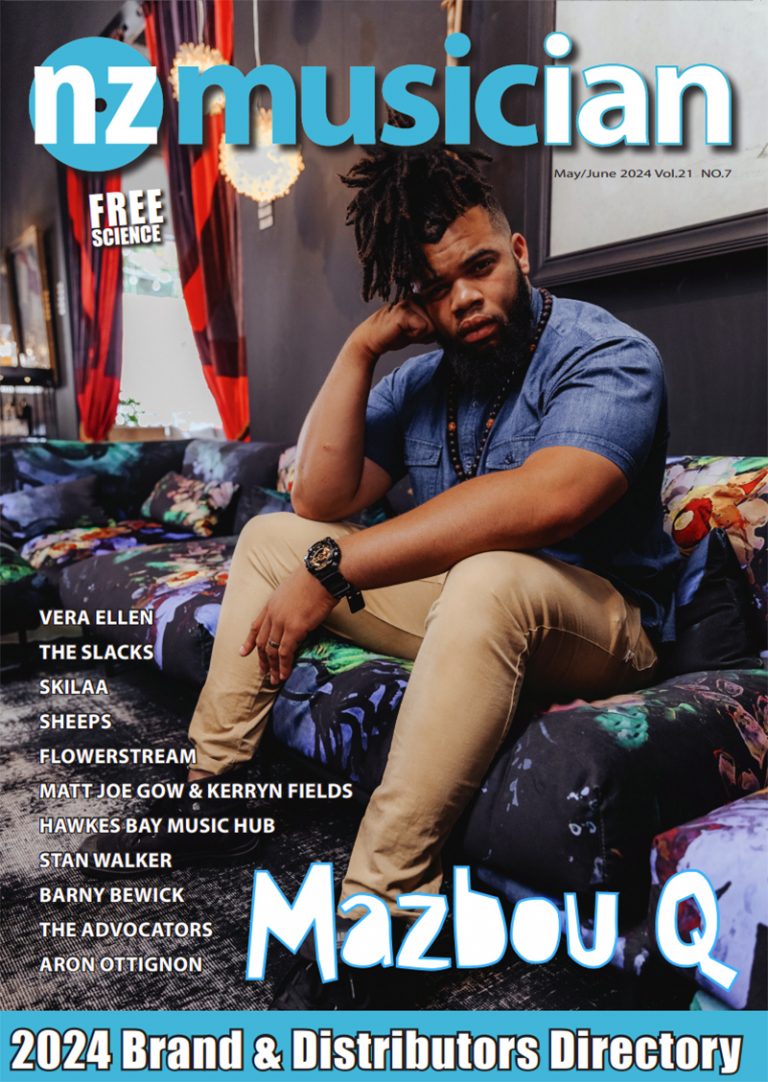Moses: Dictated Emotions
Moses: Dictated Emotions
‘Sometimes you feel like Moses, that’s when you’re toasted,’ begins the bridge of Portland alternative rock act The Dandy Warhols’ 2001 single Horse Pills. “Our name comes from that line,” explains Tony Lander, “it’s bullshit really.” Joining him is guitar-playing and singing compatriot Teyler Hayes. Along with four bandmates they form the Wellington-based Moses, an ambient psychedelia project devoted to creating music that’s “easy listening”, as they put it “… but not like the fucking Eagles.”
Hailing from around the country, the sextet have found a home for their peculiar blend of shoegaze, dream pop and rocky-ambience in Wellington.
Currently half the band is living in the capital and the other half in the Wairarapa, but this seems to have barely limited the progress of Moses. Alongside Hayes and Lander are Nathan Wightman, Daniel Wylie, Louisa Nicklin and Scott Hakkaart – the band’s original lineup bar a change of drummer nine months ago. Practice happens in Wellington, while recording (Moses’ self-titled debut album is due in September) is split between the two locations.
“We did all the rhythm tracks here [Wellington] and then we did all the guitar layers and stuff at our place [Wairarapa], we’re just trying to do it as cheaply and easily as possible…” says Hayes. “It was good to get everyone together for the rhythm sections and just smashing it out in a day. Then we spent 40 or 50 hours doing the guitar layers, which, if you’re paying for studio time, is ridiculous. But doing it at home, we can take as long as we want and get it right.”
Released via Half A Cow Records, the album is in fact a combination of three different records / sessions. Tracks from ‘Moses I’ and ‘Moses II’ (the band’s pair of debut EPs, both released within the last year), are padded out with some new additions to make up the album’s nine tracks. Overall it provides a snapshot of the six members’ musical growth over the last year.
Their writing process is fairly free flow. Preferring to keep the process as collaborative as possible, the demos remain basic, allowing each member to bring a uniqueness to the final product.
“One of us,” explains Hayes, indicating himself and Lander, “will come up with a demo of some chords or a vocal, and we’ll bring it to the band. We’ve got the saxophone player, obviously, and a couple of guitarists who just do whatever they want on top, then Tony will layer some harmonies as well.”
“It can often be quite challenging to make sure we don’t go overboard. We have to be quite critical sometimes, and say, ‘There’s a little bit too much going on here, let’s thin out one of the layers, prune something.’”
The two also was as a team following the recording process, Lander using his theoretical skills to hone in on tonal inaccuracies in their slabs of sound while Hayes uses his background in sound editing and film music to mix in ProTools. His plug-ins of choice are the Waves suite, which he is currently using to eschew the shoegaze labelling.
“It’s always a hard one. I guess shoegaze is ambient psychedelia. But recently we’ve been trying to move away from the shoegaze brand I guess, as we try to make all the elements of our music more defined and less of the wall of sound associated with shoegaze.”
Ryan Achten who produced the album artwork was at high school with Hayes.
“We’ve collaborated for years and we’ve got a real good understanding I guess. He listens to all the music. He’s very aware of what we’re going for.”
Achten has designed all of Moses’ releases thus far, alongside the art for Doprah’s excellent 2016 release ‘Wasting’. Featuring third eyes, medieval tapestries and some sort of baby demon-dog, there is no shortage of religious iconography in his art, pairing well with the band’s name.
Hayes briefly explains the proliferation of eyes.
“It comes down to our whole idea of music in general. I think that in music (when done well), for the period a listener listens to your song, you dictate emotion. You’re the eyes with which they view the world.
“What you see in pop is a lot of product placement because people have begun to realize you can dictate someone’s worldview for 3-4 minutes. What psychedelic music does is take those tools and give people an out-of-body, spiritual experience. It sticks with you and molds who you are as a person. I speak for most people in the band in that that’s the music we’re aspiring to make.”
Moses are planning to go on a four-date tour in September to promote the album, though in recent practices they’ve already been working on what’s to follow.
“At the moment we’re focusing on getting this album out, then making the next one,” says Hayes. “Just focusing on making music really, just seeing where it goes from there. It’s all you can really do.”

